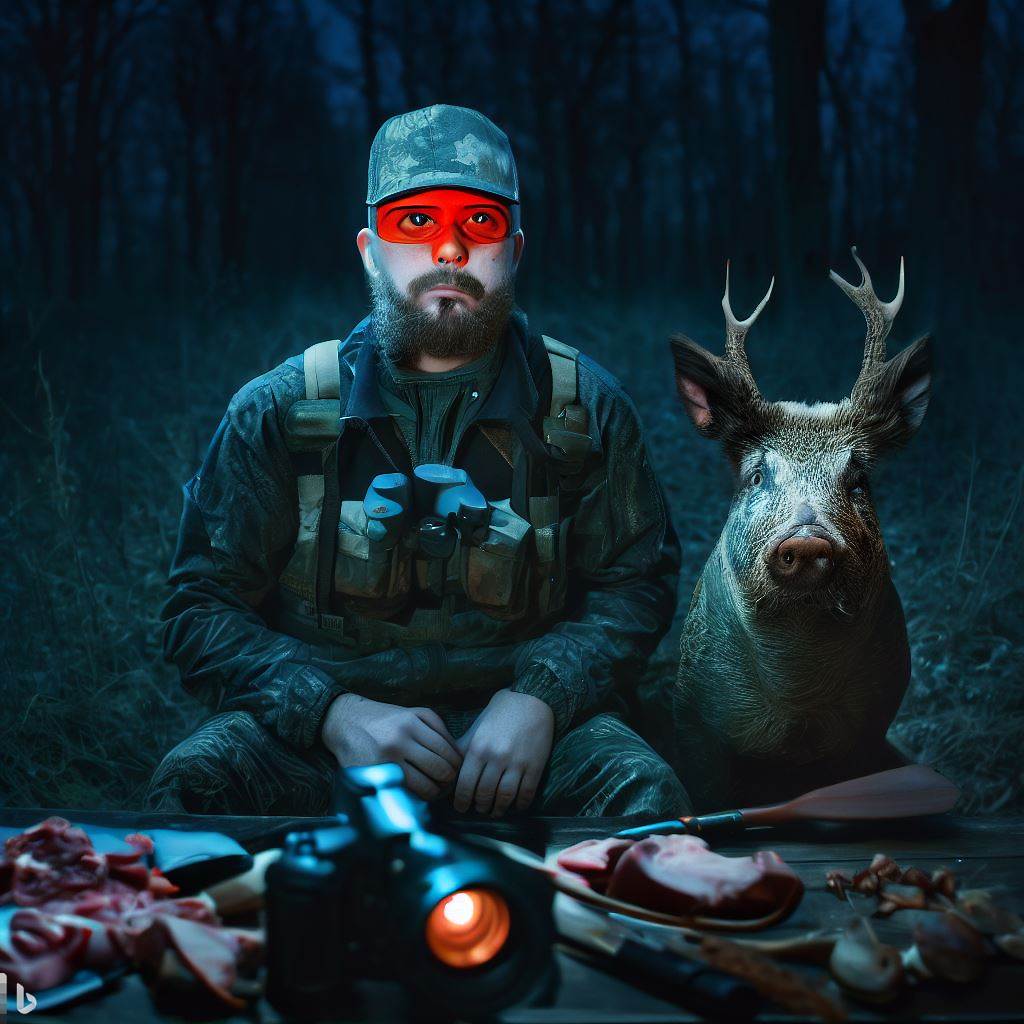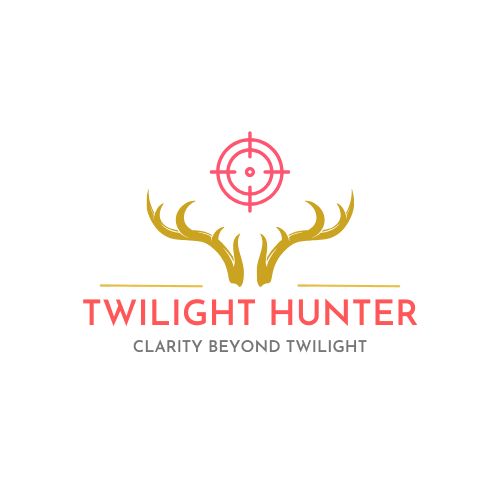

In this article, we explore the fascinating world of military night vision gear and its possible applications in hunting. We will delve into the question of whether there are any legal regulations or restrictions surrounding the use of such advanced technology during hunting activities.
Join us as we uncover the legal landscape and shed light on the potential implications of using military-grade night vision gear for hunting enthusiasts.
Introduction
Welcome to our comprehensive guide on the use of military night vision gear for hunting. In this article, we will explore the regulations and restrictions surrounding the use of this advanced equipment in hunting activities.
Night vision gear has become increasingly popular among hunters due to its ability to enhance visibility in low-light conditions.
However, it is important to understand the legal framework and safety considerations associated with using such equipment for hunting purposes.
Let’s delve into the world of military night vision gear and its regulations together!
Understanding Military Night Vision Gear
Before we delve into the regulatory aspects, let’s take a moment to understand what military night vision gear entails.
Military night vision gear refers to a wide range of devices that utilize technology to amplify ambient light, making objects more visible in extremely low-light conditions.
These devices come in various forms, including goggles, scopes, and binoculars, and use different technologies such as thermal imaging, image intensification, and infrared illumination.
Night vision gear has evolved significantly over the years, and military-grade equipment offers exceptional performance and clarity.
Due to its effectiveness, many hunters have started to explore the benefits of using military night vision gear during nighttime hunting excursions.
However, it is essential to be aware of the laws and regulations surrounding the use of such equipment to ensure compliance and safety.
Hunting Regulations And Night Vision Gear
General Hunting Regulations
Before examining the regulations specific to night vision gear, it is crucial to understand the general hunting regulations that apply in most jurisdictions. Hunting is a regulated activity to promote conservation, safety, and ethical hunting practices.
These regulations typically cover various aspects, such as hunting seasons, bag limits, weapon restrictions, and licensing requirements.
It is essential for all hunters to familiarize themselves with the general hunting regulations in their respective states or regions.
Compliance with these regulations ensures the preservation of wildlife populations and habitats while promoting responsible hunting practices.
Laws Regarding Night Vision Gear
While hunting regulations vary by jurisdiction, most states have specific laws that address the use of night vision gear. These laws are in place to maintain a fair and ethical hunting environment while still allowing hunters to take advantage of technological advancements in optics.
Some states allow hunters to use night vision gear during hunting seasons, whereas others may restrict its use to certain game animals or specific types of hunting, such as feral hog control.
Additionally, these laws may have specific requirements regarding the type of night vision gear allowed or impose restrictions on the use of additional features like infrared illuminators.
To ensure compliance with the law, hunters should carefully review the regulations set by their state wildlife agencies or consult with local hunting authorities before using military night vision gear for hunting purposes.
Restrictions On Night Vision Usage
Beyond the laws pertaining to night vision gear, hunters must also consider any additional restrictions that may apply to its usage. For example, some agencies may prohibit the use of night vision gear in certain wildlife management areas or during specified times of the year.
These restrictions are in place to minimize disturbances to sensitive habitats or protect specific species during critical life stages.
To ensure the preservation of wildlife and their habitats, it is crucial for hunters to respect these restrictions and use night vision gear responsibly.
By adhering to these guidelines, hunters can help maintain a harmonious balance between their hunting pursuits and the well-being of the environment.
Federal Regulations
In addition to state-level regulations, hunters using military night vision gear must also consider any applicable federal regulations.
While federal laws specifically targeting the use of night vision gear in hunting activities are limited, the use of such equipment may still fall under broader federal laws and regulations.
For example, the use of night vision gear may be subject to restrictions under the Migratory Bird Treaty Act (MBTA) if hunting migratory birds.
Under the MBTA, certain hunting techniques or equipment that provide hunters with an unfair advantage over birds may be prohibited.
It is important to consult the U.S. Fish and Wildlife Service or relevant federal agencies to ensure compliance with these regulations when using night vision gear for hunting migratory birds or on federal lands.
State-By-State Regulations
To gain a comprehensive understanding of the regulations surrounding the use of military night vision gear for hunting, it is necessary to examine the specific rules in each state.
While we cannot provide an exhaustive list of regulations for every state in this article, we can highlight a few examples to illustrate the diversity of regulations across the country.
- Texas: In Texas, the use of night vision gear is permitted for hunting feral hogs, coyotes, and other non-game animals. However, hunters must obtain a permit from the Texas Parks and Wildlife Department before using night vision gear during hunting activities.
- Alaska: In Alaska, night vision gear can be used for a variety of hunting purposes, including big game hunting. However, hunters must comply with specific restrictions outlined by the Alaska Department of Fish and Game, such as obtaining a permit for using artificial light and meeting certain visibility requirements.
- Colorado: Colorado has a more limited approach to night vision gear usage. It is generally prohibited, except under special circumstances with authorization from the Colorado Parks and Wildlife Department. The use of infrared illuminators or any form of artificial light is also strictly regulated.
These examples highlight the significant variations in regulations across different states. It is crucial for hunters to research and understand the specific regulations governing the use of military night vision gear in their desired hunting destinations.
Safety Considerations
While regulations are vital for maintaining a responsible hunting environment, safety should always be a top priority when using military night vision gear. Hunters must consider the following safety aspects when utilizing this specialized equipment.
Visibility And Identification
One concern associated with using night vision gear is the potential for reduced visibility and identification of targets. The enhanced low-light visibility provided by night vision gear does not come without its limitations.
Hunters must ensure they have a clear line of sight and positively identify their target before taking any shot.
To mitigate the risks associated with limited visibility, hunters should take extra precautions, such as using supplemental lighting devices, studying local hunting regulations, and obtaining proper training on the safe use of night vision gear.
By maintaining a high level of situational awareness and practicing responsible shooting ethics, hunters can minimize the chances of accidents or mistaken identification.
Disturbance To Wildlife
The use of night vision gear can potentially disrupt wildlife behavior and habitats if not used responsibly. Hunters should be aware of the proximity of their activities to sensitive wildlife areas and exercise caution to minimize disturbances.
Sudden or excessive use of artificial lighting sources, especially in areas where nocturnal wildlife activity is prevalent, may result in unintended consequences.
It is crucial to strike a balance between utilizing night vision gear for hunting purposes and minimizing disturbance to wildlife populations.
Respecting wildlife habitats and observing recommended distances can contribute to the preservation of ecological balance.
Penalties For Violations
Failure to abide by the regulations surrounding the use of military night vision gear during hunting can lead to severe penalties. Each jurisdiction may have different penalties for violations, ranging from fines to the revocation of hunting licenses or permits.
To avoid legal repercussions, hunters should thoroughly familiarize themselves with the regulations and restrictions pertaining to the use of night vision gear. By doing so, they can ensure their hunting activities are both legal and ethical.
Alternatives To Military Night Vision Gear
While military night vision gear provides unique advantages for hunting in low-light conditions, hunters may also explore alternative options that comply with local regulations. Some popular alternatives include:
- Thermal Imaging Scopes: Rather than relying on image intensification, thermal imaging scopes capture the heat signatures emitted by living organisms. These scopes are often favored by hunters as they allow for effective target acquisition without the use of visible light, making them less likely to disturb wildlife.
- High-Powered Flashlights: Depending on local regulations, using high-powered flashlights in conjunction with regular optics may provide sufficient visibility in low-light conditions. However, hunters should be mindful of the potential for startling animals with sudden bursts of light.
- Awareness and Camouflage Techniques: Utilizing camouflage clothing and practicing stealth techniques can also enhance a hunter’s ability to remain undetected in low-light conditions. Developing keen senses and being aware of movement patterns can significantly contribute to a successful hunting experience.
Exploring these alternatives can provide hunters with legal and effective options for hunting in low-light conditions, while still respecting local regulations and maintaining safety considerations.
Conclusion
We hope this comprehensive guide has shed light on the legal regulations and restrictions surrounding the use of military night vision gear for hunting activities.
Understanding and complying with these regulations is crucial to ensure ethical hunting practices, the preservation of wildlife populations, and the protection of natural habitats.
Remember, always familiarize yourself with the specific regulations in your state or region, consult with local wildlife agencies or hunting authorities, and prioritize safety in all your hunting endeavors.
By staying informed and respecting the delicate balance between hunting and conservation, we can create a sustainable and responsible hunting community. Happy hunting!
Top Night Vision Goggles of 2023: Expert Reviews and Buying Advice
The Ultimate Guide to the Top 5 Night Vision Binoculars for Hunting
Top 5 Night Vision Monoculars for Hunting in 2023 | Best Rating
GOSKY BAK4 Angled Night Vision Scope Review for Hunters
How Do I Minimize Noise When Using Night Vision For Hunting?





